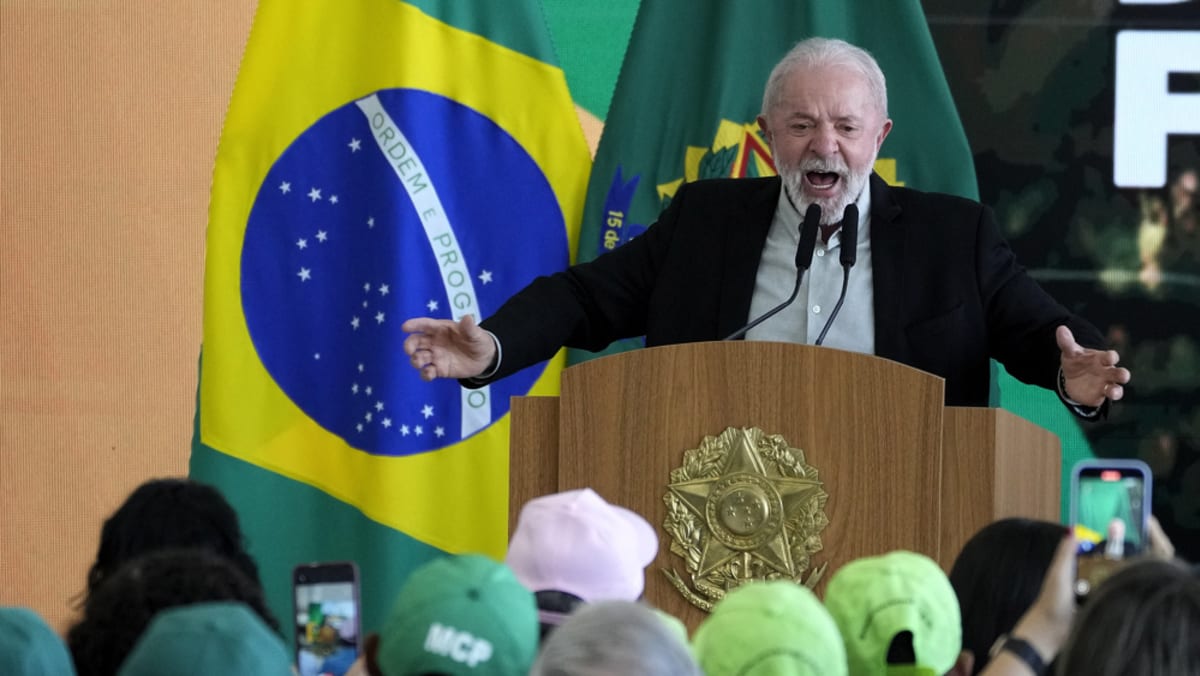BRASILIA: Brazilian President Luiz Inacio Lula da Silva said he wanted to find a diplomatic solution to US President Donald Trump’s threat of 50 per cent tariffs on Brazilian exports, but vowed to reciprocate like-for-like if they take effect on Aug 1.
“We’ll first try to negotiate, but if there’s no negotiation, the law of reciprocity will be put into practice,” Lula said in an interview with Record TV, citing a law Congress recently passed giving the president powers to retaliate against trade barriers. “If they’re going to charge us 50, we’ll charge them 50.”
The president is unlikely to announce any retaliatory measures until the tariffs are implemented, said a Brazilian diplomat who requested anonymity to describe internal government debates. “We have until Aug 1,” the source said.
In a letter to Lula published on Wednesday (Jul 9), Trump linked the tariffs to Brazil’s judiciary launching legal proceedings against former President Jair Bolsonaro, who is on trial on charges of plotting a coup to stop Lula from taking office in 2023 after hundreds of pro-Bolsonaro supporters stormed Congress. Trump said Bolsonaro was the victim of a “witch hunt.”
Lula criticised Bolsonaro for perpetuating claims of legal persecution, stressing the former president’s son, Eduardo Bolsonaro, took leave from his role in Congress at least in part to head a campaign in his father’s favour in the United States.
“The former president of the Republic should take responsibility, because he is agreeing with Trump’s taxation of Brazil. In fact, it was his son who went there to influence Trump’s mind,” Lula said.
In a social media post late on Thursday, Bolsonaro said Trump’s letter announcing tariffs was received with “a sense of responsibility”, adding he respects and admires the US government.
Bolsonaro argued the US measure was a reaction to Brazil’s distancing from freedom. “This would never have happened under my government,” he wrote.
The former president also urged the powers to act by presenting measures to restore what he called “institutional normality”.
